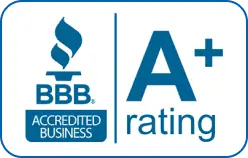Sleep apnea is a common sleep disorder that can significantly impact an individual’s health and well-being. For those seeking life insurance coverage, having sleep apnea, especially if undiagnosed or poorly managed, can affect policy eligibility, rates, and underwriting decisions.
While sleep apnea may introduce challenges when applying for coverage, it doesn’t exclude anyone from securing the right life insurance policy. The key is understanding how sleep apnea symptoms and sleep apnea treatments influence your profile from the perspective of a life insurance company. Applicants who actively manage their condition and work with an independent life insurance agent are more likely to find affordable life insurance options that suit their needs.
Key Takeaways of Life Insurance for Sleep Apnea Diagnosis
- Sleep apnea is considered a significant health risk by insurers and can impact life insurance policy eligibility and premium rates.
- Proper diagnosis and consistent use of sleep apnea treatments like CPAP therapy improve approval chances and may lead to more favorable life insurance premiums.
- Applicants who manage their sleep apnea effectively can still qualify for standard or even preferred rates with many insurance companies.
- Independent life insurance agents can help match individuals with sleep apnea to carriers that offer more affordable life insurance coverage.
- Full disclosure, documented compliance, and proactive health management are critical to avoiding delays, denials, or higher costs in the life insurance process.
What Is Sleep Apnea?
Sleep apnea is a condition where a person’s breathing repeatedly stops and starts during sleep. The two main types are obstructive sleep apnea (OSA) and central sleep apnea (CSA). OSA is the more common type and occurs when throat muscles relax intermittently.
Because sleep apnea can lead to serious health complications like heart disease, stroke, and high blood pressure, life insurance companies take it seriously when evaluating applications.
How Sleep Apnea Is Diagnosed
A sleep study, or polysomnography, is typically required for diagnosis. This test records brain activity, blood oxygen levels, heart rate, and breathing during sleep. An at-home sleep test may also be used.
Insurers often ask for sleep study results when evaluating an application. They use these results to determine severity and whether the applicant is complying with recommended treatments like CPAP (Continuous Positive Airway Pressure).
The Role of CPAP Compliance
Using a CPAP machine regularly is a major positive indicator for insurers. CPAP therapy helps prevent breathing interruptions, reduces risk of comorbidities, and improves overall health outcomes.
Insurance underwriters typically look for documentation showing consistent CPAP use, usually through data recorded by the device or a physician’s statement.
Why Life Insurance Companies Care About Sleep Apnea
Insurers assess sleep apnea as a risk factor because it correlates with other serious medical conditions. If untreated, sleep apnea may shorten life expectancy and increase the chance of claims being filed earlier.
Applicants with controlled sleep apnea often receive better policy offers than those who ignore or inadequately treat their condition. Compliance with treatment is a key underwriting criterion.
Health Risks That Influence Underwriting Decisions
Sleep apnea is more than just a sleep issue, it’s a health condition that can lead to serious complications like high blood pressure, heart disease, and stroke. These risks make insurers cautious, as they directly impact life expectancy and the likelihood of a claim being filed sooner than expected.
When reviewing applications, underwriters take these associated health concerns into account, especially if the sleep apnea is untreated or poorly managed. The better an applicant manages their condition, the more favorably they’re viewed by insurance providers.
Why Life Insurance Companies Care About Sleep Apnea
Life insurance companies care about sleep apnea because it’s closely linked to long-term health risks that can shorten life expectancy. Conditions like hypertension, cardiovascular disease, and diabetes often occur alongside untreated sleep apnea, increasing the chances of an early claim payout.
For this reason, insurers carefully evaluate the severity of the condition, whether it’s being properly managed, and if the applicant is following a treatment plan. The more stable and controlled the sleep apnea is, the better the chances of securing favorable life insurance terms.
Underwriting Sleep Apnea: What Insurers Look For
Life insurance underwriters evaluate several factors related to sleep apnea:
- Severity (mild, moderate, severe)
- Date of diagnosis
- Treatment compliance
- Presence of related health issues
Severe untreated cases are likely to face higher premiums or even denial, while mild, well-controlled cases often qualify for standard or better rates.
Can You Get Life Insurance If You Have Sleep Apnea?
Yes, many individuals with sleep apnea qualify for life insurance. The availability of coverage depends on how well the condition is managed and whether any other serious medical conditions are present. Applicants should be prepared to provide detailed medical records and documentation related to sleep apnea management. Working with an agent experienced in high-risk cases can be helpful.
Coverage Options with a Sleep Apnea Diagnosis
Having sleep apnea doesn’t automatically disqualify someone from getting life insurance. In fact, many individuals with mild to moderate sleep apnea, especially those who are actively managing their condition, can qualify for standard or even preferred rates.
Coverage options may vary depending on the type and severity of the sleep apnea, as well as overall health, age, and treatment compliance. Whether it’s term, whole, or guaranteed issue life insurance, there are policies available, and working with an experienced agent can help match applicants to the right plan based on their unique health profile.
What Insurers Consider When Evaluating Applicants with Sleep Apnea
When evaluating applicants with sleep apnea, insurers look at several key factors to assess risk. These include the type of sleep apnea (obstructive or central), its severity (mild, moderate, or severe), the date of diagnosis, and whether the applicant is following a prescribed treatment plan such as CPAP therapy.
They also consider the presence of related health issues like high blood pressure, heart disease, or obesity. The more information and documentation an applicant provides, especially showing successful management of the condition, the more favorable the outcome tends to be during the underwriting process.
Sleep Apnea and No-Medical-Exam Policies
No-medical-exam life insurance policies can be an appealing option for individuals with sleep apnea, especially for those who want to avoid the hassle of health exams or have difficulty qualifying through traditional underwriting. These policies include simplified issue and guaranteed issue life insurance, which require minimal or no health questions and are typically issued more quickly. However, the tradeoff often includes higher premiums and lower coverage amounts.
For applicants with sleep apnea, eligibility for no-exam policies depends on the severity of the condition and whether it’s being treated. While some simplified issue applications may still ask about sleep disorders, guaranteed issue policies generally do not. These can serve as a valuable solution for individuals with more severe or unmanaged cases who might otherwise be declined for traditional coverage.
Best Practices When Applying for Coverage
When applying for life insurance with sleep apnea, preparation is key to securing the best possible rates and coverage. Start by gathering all relevant medical documentation, including your sleep study results, physician notes, and records that show compliance with treatment, especially if you’re using a CPAP machine. Demonstrating that your condition is well-managed can make a significant difference in how insurers view your risk profile.
It’s also important to be completely transparent on your application. Omitting or downplaying your diagnosis can lead to delays, higher premiums, or even denial of coverage. Working with an experienced life insurance agent who understands how sleep apnea affects underwriting can help you navigate the process more effectively and identify carriers that are more favorable toward your specific health situation.
What Rates Can People with Sleep Apnea Expect?
People with sleep apnea can expect a wide range of life insurance rates depending on the severity of their condition and how well it’s managed. Those with mild sleep apnea who consistently follow treatment, such as CPAP therapy, may qualify for standard or even preferred rates, particularly if they have no other major health issues. Insurance companies tend to view well-controlled cases more favorably, especially when supported by documentation from a healthcare provider.
In contrast, applicants with moderate to severe sleep apnea who are not adhering to treatment may face higher premiums or be placed in a substandard risk category. The presence of related conditions like obesity, high blood pressure, or heart disease can also raise rates. To secure the best pricing, it’s essential to show proactive health management and a history of medical compliance.
How to Improve Your Chances of Approval
Take the following steps to increase your odds:
- Stick to your CPAP therapy
- Maintain a healthy weight
- Attend regular checkups with your sleep specialist
Document everything, insurers value a proactive approach when it comes to health management.
How Sleep Apnea Affects Policy Renewals
Sleep apnea can influence policy renewals, particularly for term life insurance policies that require updated underwriting at the end of the term. If your condition has worsened or remains untreated, insurers may offer renewal at a higher rate or limit your options for extending coverage. However, if your sleep apnea is well-managed and you’ve maintained regular treatment, it can improve your chances of renewing without a significant rate increase.
For permanent life insurance policies, which typically don’t require reevaluation after the initial approval, the impact of sleep apnea is minimal once the policy is in force. However, if you’re considering converting a term policy to permanent coverage, insurers may still review your current health status depending on the terms of the conversion. Staying compliant with treatment and keeping thorough medical records helps support your case during any review process.
Common Mistakes to Avoid
When applying for life insurance with sleep apnea, several common mistakes can hurt your chances of approval or lead to unnecessarily high premiums. One of the biggest errors is failing to disclose your condition or minimizing its severity on the application. Insurers verify medical history through prescription records, physician notes, and past claims, any discrepancies can lead to a denial or cancellation of the policy.
Another mistake is neglecting treatment or failing to document CPAP compliance. Insurance companies want to see that applicants are actively managing their health. Skipping follow-up appointments, not using your CPAP machine regularly, or failing to lose weight when recommended can all raise red flags. To improve your chances of favorable underwriting, always provide complete and accurate information, follow your doctor’s guidance, and keep records that show your commitment to managing sleep apnea.
Can You Get Declined for Sleep Apnea?
Yes, it is possible to get declined for life insurance due to sleep apnea, especially if the condition is severe and unmanaged. Applicants who have been diagnosed but are not following a prescribed treatment plan, or who have experienced complications like heart problems or high blood pressure, are considered higher risk by insurers. In these cases, carriers may choose to deny coverage based on the perceived likelihood of early claims.
However, a decline isn’t inevitable. Many individuals with sleep apnea still qualify for coverage if they can show that the condition is being treated and kept under control. Providing sleep study results, documentation of treatment compliance, and maintaining a stable health profile can significantly improve insurability. For those who are declined, alternative options like guaranteed issue or high-risk life insurance policies may still be available.
Working with a Life Insurance Agent
Working with a life insurance agent can make a big difference for individuals with sleep apnea seeking coverage. Experienced agents understand how different insurers view medical conditions and can help match you with a company that has more favorable underwriting guidelines for sleep apnea. They also know what kind of documentation insurers want to see, such as CPAP compliance reports or physician letters, which can strengthen your application and potentially lead to better rates.
An agent can also guide you through the application process, helping you avoid common pitfalls like incomplete answers or missing medical records. In cases where traditional coverage is hard to obtain, they may recommend alternative solutions such as simplified issue or guaranteed issue policies. Having a knowledgeable advocate on your side can save time, reduce frustration, and improve your chances of getting the protection you need.
Frequently Asked Questions about Life Insurance for Sleep Apnea Diagnosis
Does Sleep Apnea Diagnosis Affect Life Insurance?
Yes, a sleep apnea diagnosis can affect life insurance by influencing the underwriting process and potentially leading to higher premiums, especially if the condition is moderate to severe or not well managed. However, applicants who are compliant with treatment often receive better offers.
Do You Have To Tell Your Insurance If You Have Sleep Apnea?
Yes, applicants are required to disclose sleep apnea on life insurance applications. Failing to do so can result in denial, higher rates later, or even cancellation of the policy due to misrepresentation.
What Is The Life Expectancy Of Someone With Severe Sleep Apnea?
Severe sleep apnea, if left untreated, can significantly shorten life expectancy due to its link to heart disease, stroke, and other complications. However, with consistent treatment, many people with the condition can live a normal lifespan.
Is Sleep Apnea Covered In Insurance?
Sleep apnea itself is not excluded from life insurance, but coverage decisions depend on how well the condition is managed. Health insurance typically covers diagnosis and treatment, including CPAP machines and sleep studies.
Conclusion and Summary of Life Insurance for Sleep Apnea Diagnosis: What You Need to Know
Insurance companies closely assess risk factors like severity of the disorder and treatment compliance, both of which directly affect life insurance premiums. Poorly managed cases may affect life insurance rates negatively, but those who demonstrate control and consistency are often rewarded with more affordable life insurance coverage. Whether you’re entering the life insurance business for the first time or revisiting your current policy, partnering with the right insurance company can make all the difference.
If you’re navigating life insurance sleep concerns due to a recent diagnosis, don’t go it alone. An independent life insurance agent like Michael Gray, can guide you through the process, ensuring you access affordable life insurance and personalized support. With the right preparation and his professional help, life insurance with sleep apnea is not only possible, it can be a smart, protective step for your future.
trusted by 5,000+ clients
Get Personalized Quotes Tailored to Your Company’s Needs














